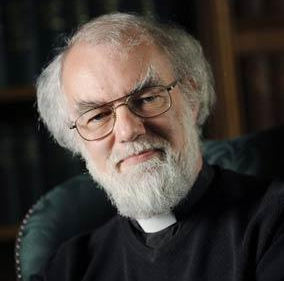Inspire Dialogue Introductions: Lord Rowan Williams
Master of Magdalene College, Cambridge
“When we go out and encounter others, we are asking for something that is not already there to come alive in us.”
Our goal at this event is very modest: it is to change the world! And since there is no other place to start but the place where we are in the present moment, with the people who happen to be around us, that is what we are doing here today…
So what are we about? Briefly, when we as human beings face the question of who we are, the temptation is always to go in one of two basically toxic directions. One is to say: “I know who I am because I am not you”, and the other is: “I know who I am and I don’t want you to help me with any of that”. Either I try to develop my identity with blinkers on – this is me, don’t interfere – or I do it by marking up more and more strongly why I am not you, and why I must never be like you. But the plain truth is that none of us has any possible way of thinking about or identifying who we are as individuals without ‘the other’ being present. We discover that we are bodies, minds and hearts because we are surrounded by other bodies, minds and hearts. There is simply no other way of moving into being human; that is the bottom line.
So ‘the stranger’ is not somebody we automatically either ignore or suspect. The stranger is the person who draws out of each of us that – possibly rather anxious, possibly rather hopeful – reaction that suggests: I may just discover here more of what I am about.
At the moment, our global culture – if we can talk at all about a global culture at present – is almost in complete melt-down in this respect. I don’t think for a second that we should under-rate the seriousness of our global situation. Paranoia, violence, lying, demonising ‘the other’, and fear at every level: all seem to be on the rise. It is a world of apparently profound untruthfulness which goes unchallenged in context after context, nationally and internationally. So this is a time when we have to be crystal clear about what we, as persons of hope, and many of us of faith, might be able to do. And we are here today to explore that and to come up with some very immediate and practical things which we can do…
Part of the function of what we might call ‘real thinking’ is always to allow ourselves to be surprised. And if we don’t want to think, then very often it is because we don’t want to change. What changes us is that which is not already there, by definition. So when we go out and encounter others, we are really asking for something that is not already there to come alive in us – and that is when we get beyond the tribal mentality. There is of course change and development which can happen within our own ‘tribe’; sometimes the person near you, who is like you, will say things that you cannot hear from anyone else. It is important to acknowledge this. But it is very dangerous if this is the only thing, because then we assume that where I am is obvious – so everyone else is neither normal nor obvious.
This is not to say that we are not interested in a truth that we can all share, or seek together: it is not the case that everybody just has their own wisdom and their own belief and that is all there is to the matter. People have to meet to fertilise each other, to grow through and within each other – and that, I believe, is one of the most important things about the nature of truth. We sometimes say in the church that only the church knows the whole truth, but we could broaden that out and say the same of the whole human race. And so once again, this means that the unexpected perspective is the one we are most likely to ignore. So one of the questions we can most helpfully ask in any group, including this one, is: “Who is not here? Who have we forgotten to invite?”
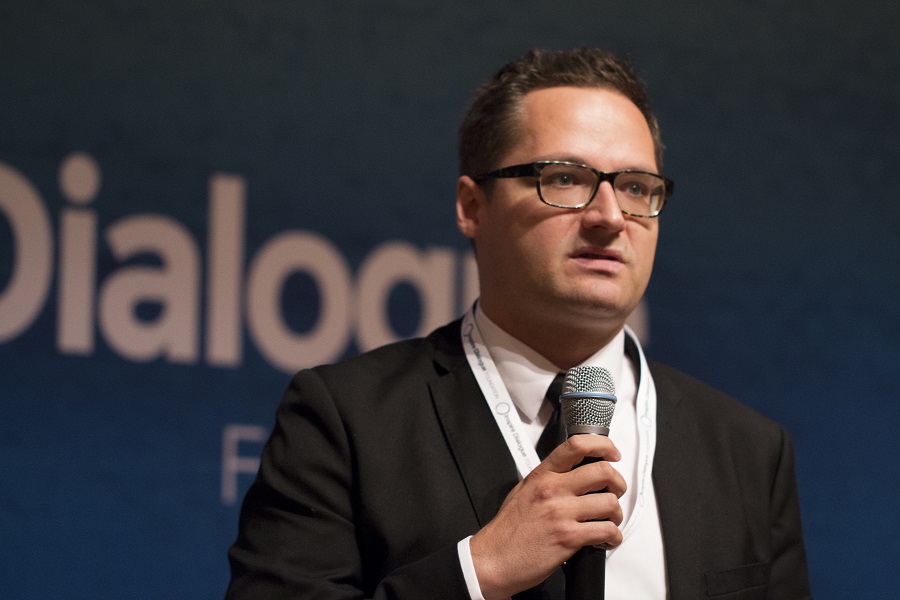
Inspire Dialogue Introductions: Frederick Smets
United Nations High Commission for Refugees (UNHCR)
“Most of these people do not need money, but they need somebody that they can have a conversation with.”
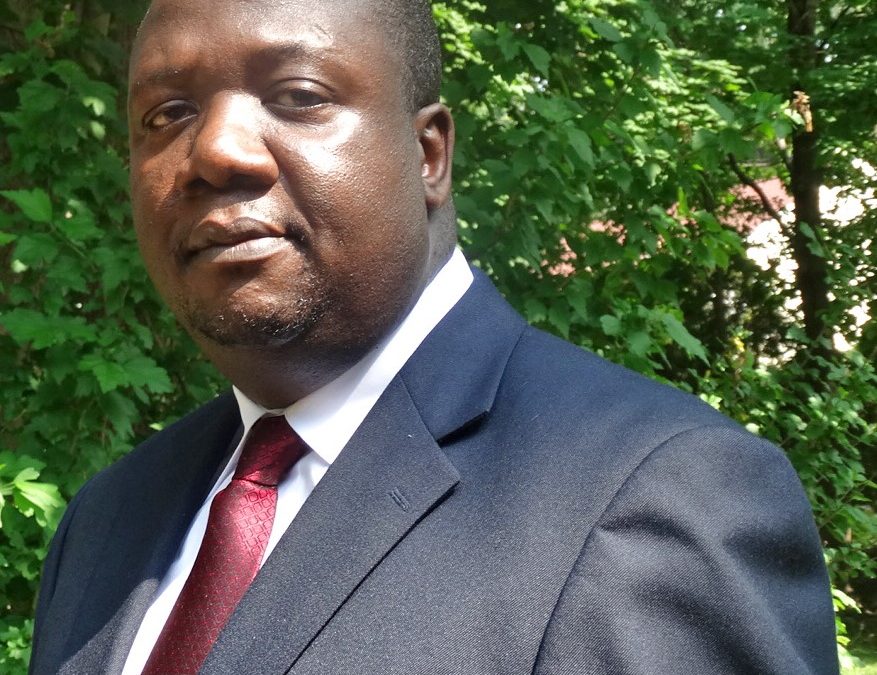
Inspire Dialogue Introductions: Tawanda Mutasah
Senior Director of Law and Policy for Amnesty International
“The stranger or ‘the other’ is a notion that we construct in our quest for a resource. In reality, there is no ‘other’…”

Inspire Dialogue Introductions: Baraa Halabieh
English-Arabic translator
“What makes humanity so beautiful is our multiculturalism… the variety in our colours, cultures and beliefs is what makes us all unique.”
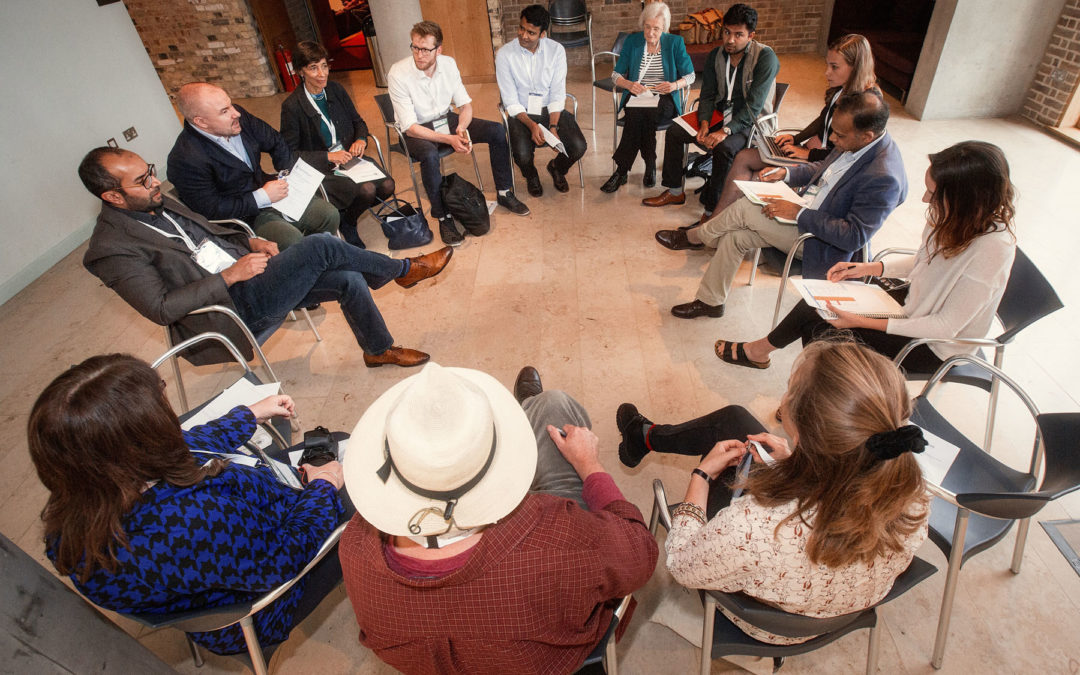
Inspire Dialogue Summaries: The Environment
Bhaskar Vira
“How do we have a dialogue with someone who is fifty years away from inhabiting this earth? This leads to considerations of inter-generational responsibility.”
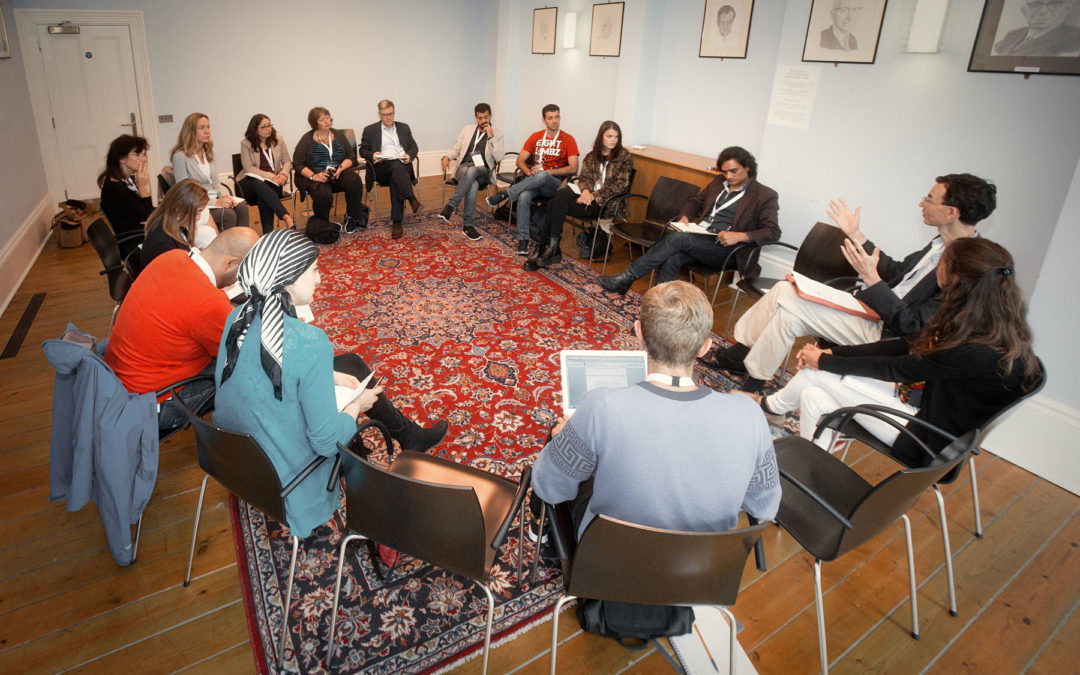
Inspire Dialogue Summaries: Conflict Resolution
Brendan Simms and Alison Liebling
“We were criticised and ridiculed by other professional groups for coming into a maximum security prison with the word ‘trust’ in mind.”
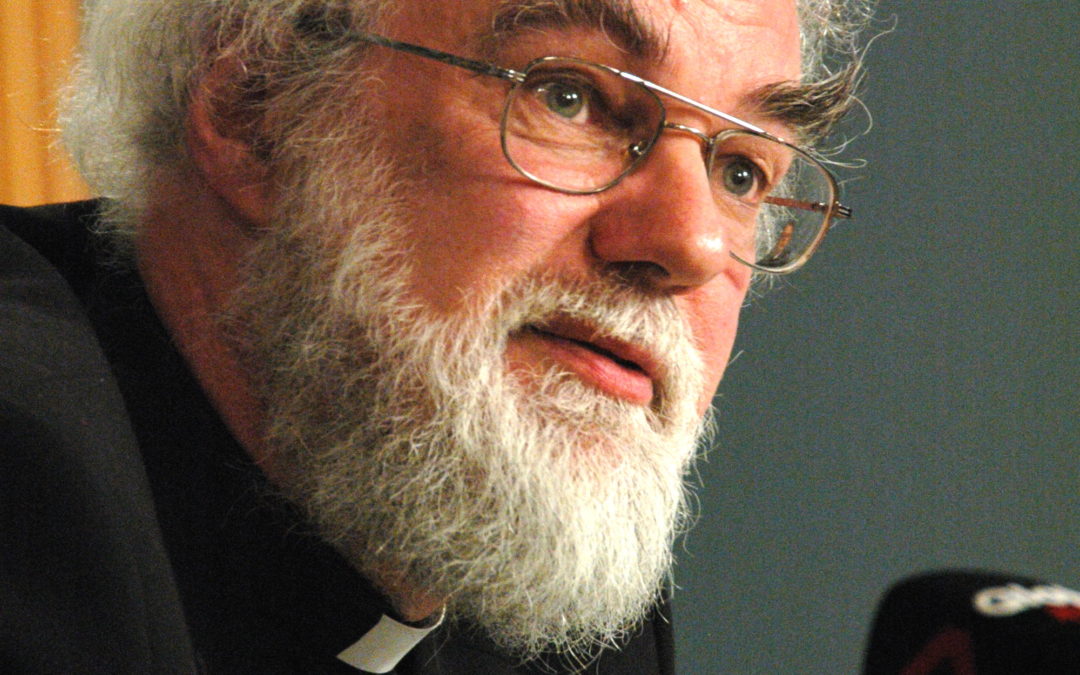
Inspire Dialogue: Final Summary
Lord Rowan Williams
“To be able to imagine that things don’t have to be as they are is perhaps one of the most important things that human beings ever do.”
MORE IN BESHARA MAGAZINE:
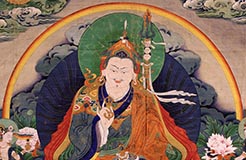
Unlocking the Heritage of Tibet
Dylan Esler talks about the ancient contemplative tradition of Dzogchen Buddhism – the ‘effortless path’ – and the 84000 Project, which is preserving the precious heritage of Tibetan Buddhism
‘Once we learn to dissolve that sense of having to react to whatever occurs, then we open up to a more spacious perspective, and that is the perspective of non-duality.’
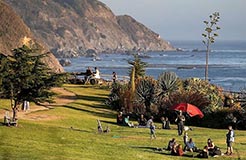
The Vision of Esalen
Michael Murphy, co-founder of the Esalen Institute in California, reflects on the contribution of an institution that has revolutionised our understanding of spirituality
‘We’re all, whether we know it or not, together involved in a cosmic jailbreak, breaking out of our golden chains.’
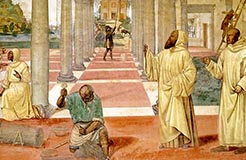
Transmission Across Cultures
Writer and art historian Diana Darke brings to light the largely unacknowledged influence of Islamic architecture and craftsmen on the iconic buildings of Europe
‘If you are building a prestige project, of course you’re going to go for the best, wherever it comes from.’
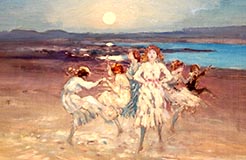
George William Russell: A Forgotten Irish Mystic
Gabriel Rosenstock gives a poetic response to twelve visionary paintings by the ‘myriad-minded’ writer and polymath
‘[Through his works] we may see the world once more in its primal beauty, may recover a sense of the long-forgotten but inextinguishable grandeur of the soul’
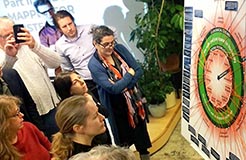
Rolling Out the Doughnut
Leonora Grcheva of DEAL talks about how Kate Raworth’s innovative economic theory is being translated into sustainable practice in cities across the world
‘The Doughnut gives us a new way to conceptualise who we are, how we position ourselves as part of the living world, and how we can reimagine our future’
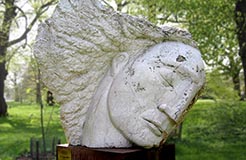
Emily Young: Giving Voice to the Earth
The distinguished sculptor Emily Young talks about her work and the stories that stone can tell us
‘What does it look like when a human is at one with the universe? Embracing it all…’
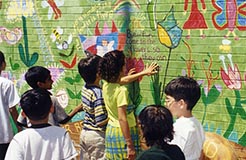
Richard Lewis: Pilgrim in the Land of Children
Robert Hirshfield appreciates the work of a teacher who has devoted his life to inspiring children to write imaginative poetry
‘A child is the privacy of a universe learning to talk to itself.’

The Power of Gold
Alan Ereira talks about his new book, which traces the relationship between human beings and this most precious metal over a period of 7,000 years
‘The notion that gold contains immutable value is somehow enormously powerful. Of course, gold doesn’t actually have that value in itself; we attribute that to it without thinking, unconsciously.’
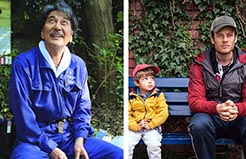
Introducing… ‘Perfect Days’ and ‘Nowhere Special’
Jane Clark watches two films with a contemplative theme

The Philosophy of Prayer
Distinguished theologian George Pattison talks about the meaning of prayer in the modern world and how it brings us to awareness of our essential nothingness
‘Our starting point always has to be that we are not makers of our own being, but we are before we start doing anything for ourselves.’
